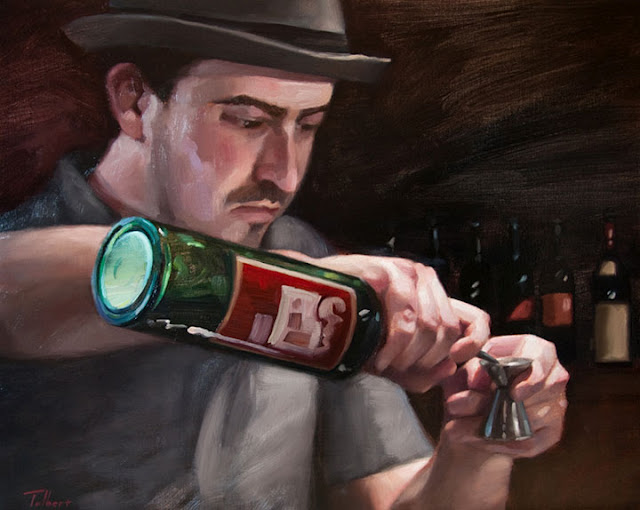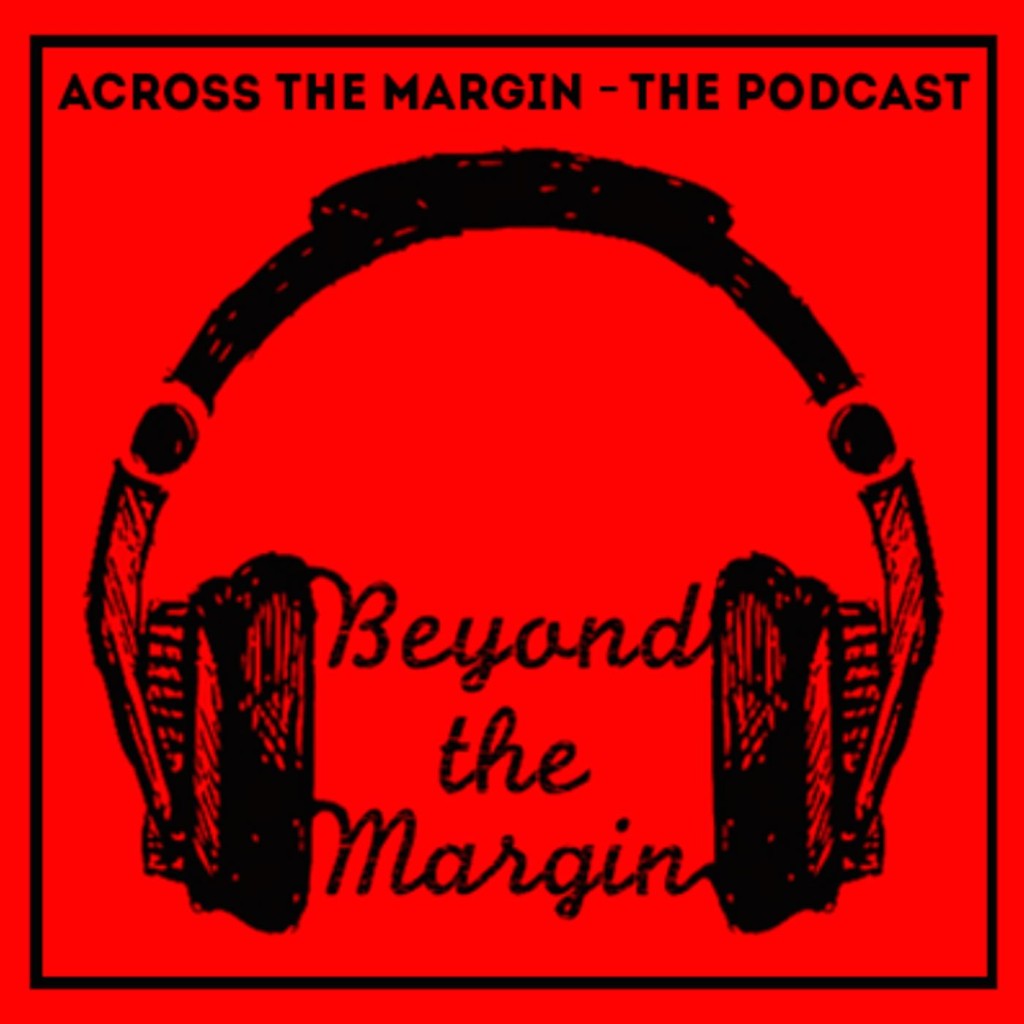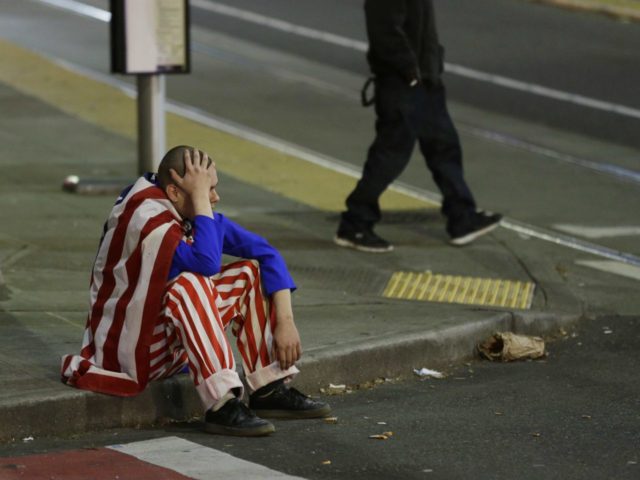An inviting tale, drawing the reader into the all-too-often cutthroat world of show business, featuring a plan rife with the potential for musical and professional success mixed with some hard-earned vengeance…

by: Alan Swyer
On his way to a lunch with a fledgling cartoonist named Amanda, who only recently had become more than just a friend of a friend, Teddy Levine cringed when his Android rang. Pulling over in his battered Toyota, he glanced at the caller ID, then reluctantly answered.
“My lunch date just canceled,” announced his boss, Mo Resnick. “So let’s you and I attack some sushi.”
“B-but—“ Teddy started to say, only to be interrupted by Resnick.
“Please don’t tell me you ate it last night or aren’t really up for it. We’ll leave in twenty minutes, kiddo.”
Unhappily, Teddy reached out to Amanda while making a less than legal U-turn, apologizing for the last minute scratch and asking to make it up to her with dinner on Saturday. Then he drove back to the recording studio where he worked.
Though tempted to protest to Resnick, who expected him to be on-call not just whenever and wherever, but also for what Teddy termed “whatever,” instead he reminded himself that there was a name for what he was going through: paying dues.
Starting as a go-fer — as in Go for this, Go for that — was a time-honored way of learning the ins-and-outs of the record business. More importantly, at the moment when Pro Tools and home studios had made professional studios an endangered species, getting an entry-level position was harder than ever.
It was live recording that thrilled Teddy, the kind done by his heroes from the past: Ray Charles, Nat “King” Cole, Frank Sinatra, Dinah Washington, Linda Ronstadt, and so many others. That’s what brought him to Los Angeles in the first place — that plus a chance to escape both his family and the punishing New Jersey winters. His dream was not to get musicians to lay down tracks in separate places at different times, but to be part of the excitement, synergy, and interaction resulting from talented people working as they did once-upon-a-time — together.
As an engineer — or better yet as a producer — Teddy’s dream was to work with horn sections, strings, maybe even big bands, and above all with a blend that made the whole greater than the sum of the individual parts.
In the meantime, Teddy wanted to log as much experience as possible, whether with rap, hip-hop, Jazz, rock, R&B, or even, if he got lucky, an a cappella group singing a contemporary version of doo-wop. That meant putting up with irascible, mercurial, exasperating Mo Resnick would hopefully change from a nightmare to a means to an end.
“You can pick three artists from any time in history to record,” Mo Resnick mumbled at lunch, wolfing down a crab and avocado roll. “Who would you choose?”
“Ray Charles,” replied Teddy with no hesitation.
“Because?”
“He’s the greatest artist of the second half of the twentieth century.”
“And the first half?”
“Duke Ellington,” stated Teddy.
“So he’d be your second choice?”
Teddy shook his head. “Actually I’d go with Fats Domino or Thelonious Monk.”
“Not Amy Winehouse, Tupak, or Springsteen?” asked Resnick.
Teddy frowned. “Nothing wrong with ’em, but—“
“So your third would be whichever one’s not second?”
“Nope” answered Teddy. “I’d say Buddy Bolden.”
“Buddy who?”
“The New Orleans cornetist legend who was never recorded, but supposedly invented Jazz.”
Resnick studied Teddy for a moment. “How old are you?”
“Twenty-two.”
“Going on seventy? Shouldn’t you be grooving on the music of today?”
“I do,” said Teddy. “But the old stuff’s better.”
After eyeing Teddy strangely, Mo Resnick downed a piece of eel, followed by a sip of sake.
With business slow that week — their only bookings were a Rockabilly band Teddy viewed as a pale imitation of the Blasters, plus some Brits who’d never be the Stones, Kinks, or even the Fine Young Cannibals — Teddy hoped to spend time working with the tools of his chosen trade. His plan was to sit at the board and simulate different mixes with a varying array of imaginary — or pre-recorded — vocalists, guitar players, bass players, and drummers, plus maybe a sax or two.
Those efforts, however, were repeatedly interrupted by Mo Resnick. Sometimes it was to bellyache about the state of the music biz, or to whine about the condition of the world. Other times it was to reminisce about days gone by.
“I can remember,” Resnick told Teddy on Wednesday afternoon, “when the corner of Selma and Cahuenga was the recording capital of the world. It was studio after studio, with everyone who was anyone coming in. The Beach Boys. Solomon Burke. Herbie Hancock. Tom Waits. Shit, that corner even provided the traffic noise they used on The Heart Of Saturday Night.
Resnick sighed before continuing. “Martoni’s, which made the best baccala outside of Naples, was our commissary. On a given night you could bump into Herb Albert, Sonny Bono, Jagger, even Ahmet if he was in town.”
On Thursday Morning, Mo Resnick’s journey into nostalgia was replaced by a litany of frustrations. “My wife is bugging me to hang it up,” Resnick announced with a grimace.
“Will you?” asked Teddy.
“And dress like a human Popsicle to play golf? Don’t you know the joke? I married you for better or for worse, but not for lunch! Speaking of lunch, how about Thai today? Unless, that is, you’re meeting Jay-Z, Adele, or the ghost of David Bowie.”
“I wish,” joked Teddy, annoyed that he’d have to scratch a get-together for tacos with a friend from Jersey named Vinnie.
“We’re gonna hit a place with the cutest waitresses outside of Bangkok,” announced Resnick. “Instant hard-ons.”
Friday morning became a time for Mo Resnick’s reveries. “Know what I dreamed?” he asked Teddy upon entering the studio. “Charlie Parker was in town, which led to a jam session with Teddy Edwards, Wardell Gray, Eric Dolphy, and Mingus. Then, after I woke up to pee, it was Dexter Gordon, Shelly Manne, Hampton Hawes, and Leroy Vinnegar.”
“You really miss those days?” asked Teddy.
“Kiddo, I miss when shit mattered. Books, plays, even movies — I mean with no superheroes or special effects. Know how hard it was to record back when? No Pro Tools, no laying down tracks, no bullshit. You got it on a single take, or you didn’t get it at all. But know what it led to?”
“Tell me,” said Teddy.
“Guys pushing each other, driving each other, and coming up with stuff that was memorable. Think that’s any different than novels? Imagine writing by hand, or using something you probably never heard of: a manual typewriter. Or even an electric one. Now it’s a hundred times easier, but where’s the next Joseph Heller, Salinger, Pynchon, or Nabokov? Surprised you, didn’t I? You didn’t know I could read without my lips moving.”
“I wouldn’t go that far.”
“How about movies, with those heavy Mitchell cameras that needed tons of light? Yet where’s today’s Casablanca? Citizen Kane? The Lady Eve? His Girl Friday?”
Teddy watched Resnick shake his head. “I’m turning into a dinosaur, huh?” said his boss. When Teddy chose not to answer, Resnick laughed ruefully. “C’mon, let’s go ogle those Thai waitresses again. That’ll give me something to fantasize about tonight when I can’t sleep.”
“Instead of Charlie Parker?”
“A guy can hope,” murmured Resnick wistfully.
“Sounds to me like you’re trying hard to be philosophical,” said Amanda on Saturday evening after she and Teddy placed their orders at an Indian restaurant in Culver City.
“Is that a nice way of saying frustrated?” Teddy replied.
“In a way,” Amanda acknowledged. “Is there any hope?”
“For me? For the studio? For the world?”
“Let’s hold off on the world and start with the studio.”
“Yes, if Resnick would start hustling to bring in more work.”
“Or allow you to?”
“Maybe,” said Teddy.
“But how about you?” asked Amanda.
“Not the world?”
“I’m not having dinner with France, England, or Ethiopia,” teased Amanda.
“It depends who you’re listening to.”
“Give me a for-instance.”
“You sure?” asked Teddy, who promptly received a nod from Amanda. “According to my mother, I should be in law school.”
“Why?”
“To have something to fall back on.”
Amanda frowned. “Some vote of confidence.”
“You’re telling me?”
“For what it’s worth, I believe in you.”
“I’m glad somebody does,” said Teddy as a waitress arrived with tandoori chicken, vegetable korma, rice, and naan.
On Monday morning after sweeping the studio and readying the equipment, Teddy watched Mo Resnick trudge in, looking as though he hadn’t slept all weekend.
“I’ve got a couple of calls to make,” Resnick announced, “then you and I need to talk.”
Teddy tried to stay busy while girding himself for what he expected to be bad news. Not quite ten minutes later, Resnick signaled for Teddy to step into his office.
“Want to venture a guess as to what I’m about to say?” Resnick asked.
“I’m not in the Psychic Friends Network.”
“If you’re worried I’m selling, I’m not.”
“Somehow I suspect there’s a but.”
“With business so slow,” grumbled Resnick, “I can’t see how I can keep paying you as much.”
Teddy grimaced. “As much? You spend more on a week’s worth of lunches than you pay me.”
Resnick shrugged. “How would you feel about only getting half?”
“Please say you’re kidding.”
“Then how’s this? We’ll start the cut in two weeks.”
“Okay.”
Surprised, Resnick eyed Teddy strangely. “Really okay? There’s got to be more.”
“There is,” responded Teddy. “Here’s my two weeks notice.”
“So what will you do?” asked Amanda when she and Teddy went for a walk that evening.
“Run for president, rob a bank, or maybe discover where Elvis is hiding,” Teddy joked. “Truthfully, no clue.”
“Maybe something’ll turn up.”
“Right around the time I win the lottery.”
“Do you even buy tickets?” wondered Amanda.
“No. But hey, it’s not your problem.”
“If it concerns you, it is. Want to bet?”
“Bet what?” asked Teddy.
“That something good’s in store.”
Teddy smiled. “That’s one I’d love to lose.”
Monday was a brutal day at the studio. With not a single booking, Mo Resnick repeatedly stormed in and out of his office, uttering nothing but grunts.
There was a brief respite Tuesday morning, when Studio B, the smaller of two rooms, was used to record a jingle.
Wednesday, though, Resnick was nearing a world record for grumpiness until at last, without a single word to Teddy, he took off just shy of 5 P.M. That allowed Teddy to experiment some more with the board, which he did for a couple of hours before preparing to call it a night.
But his plans of heading home changed abruptly when into the studio stepped four guys in their late twenties, each carrying an instrument.
“Is the coast clear?” asked the one with a guitar case, whose name was Willie.
“What’s that mean?” replied Teddy.
“No Oscar the Grouch,” said the guy with a bass, who went by J.P.
“Why?” wondered Teddy.
“Because every time we want to book space, guess who tries to jack us for a fortune,” said Willie. “How about being a sport and cutting us a deal with no one the wiser?”
Teddy took a moment to study the four musicians. “If I say yes, who’s producing?”
“Where’s this headed?” demanded J.P.
“I produce, you pay half price.”
“That mean both produce and engineer?” asked Willie.
“Yup.”
J.P. bit his lower lip. “What if I don’t like your work?”
“What if I don’t like yours?” Teddy responded, drawing a laugh from Willie, plus the drummer and the sax player.
“Cash when we can come up with it?” wondered Willie.
“No cash tonight, no go,” stated Teddy.
Willie pondered momentarily, then extended a hand. “Deal.”
During a break midway through the recording session, which consisted of two songs, the three other musicians headed out back to light up. Willie, meanwhile, sidled up to Teddy, who was exulting in his time at the board. “So who do we remind you of?” Willie asked.
“A little bit of Gaslight Anthem.”
“In a good sense?”
Teddy nodded. “I’m from Jersey.”
“Joisey, huh?” teased Willie. “Given a choice, who would you rather see play live, Springsteen or Southside Johnny?”
“The world may say Bruce, but for Jersey guys it’s the South.”
“I’m with you,” said Willie with a smile. “Ready to hit the second song in ten?”
“Sure,” answered Teddy, who had been hoping and praying that neither Willie nor one of his bandmates would ask who or what he had ever produced or engineered for before.
“So let me get this straight,” grumbled Mo Resnick the next morning. “Some clowns were here for almost two-and-a-half hours, but you only charged ’em for two.”
“I figured it was found money,” answered Teddy, not letting on that the session had lasted nearly twice as long as that. “I figured with things so slow, anything’s better than nothing.”
“Still—”
“But if you want me to turn guys away—”
“I didn’t say that. Just try to nail ’em for as much as you can.”
“While I’m still here.”
“What in hell’s that mean?” demanded Resnick.
“Two weeks notice, remember? And the clock is ticking.”
Sulking, Resnick trudged toward his office.
Minutes seemed like hours the rest of the day, and the same was true on Thursday until Mo Resnick finally left at 5 P.M. Not quite fifteen minutes later, into the studio came four guys with instruments. The one who seemed to be the leader — a tall guy named Shep who sported a Kangol Bucket Hat — glanced around before approaching Teddy.
“My man Willie, who was in here last night, said you cut him a solid.”
“We worked things out,” replied Teddy.
“Any chance we can do the same?”
“Who’s your producer or engineer?”
“Willie liked the way you did the honors.”
Teddy fought to hold back a smile. “Did he tell you it’s cash?”
Shep pulled out a bankroll. “I’m ready-teddy to rock & roll. We a go?”
“Let’s do it,” said Teddy, no longer worrying about being asked who or what he’d produced or engineered for in the past, since he could refer to the night before.
Saturday evening found Teddy and Amanda back at what was rapidly becoming their favorite Indian place. When their drinks arrived Amanda lifted her mango lassi. “To your first hit!”
“What kind of hit?” asked Teddy.
“Firecracker, silly.”
“What’s Firecracker?”
“Please tell me you’re kidding. That band you liked that you recorded Wednesday night. The downloads are going through the roof.”
“Seriously?”
“Somebody’s been playing ostrich. What’d you do the last three nights?”
“Recorded.”
“And how many groups want in next week?”
“A bunch.”
“Doesn’t that tell you something?” Amanda asked. “Does your boss even have a clue?”
“He’s just happy the studio’s not completely dead.”
Amanda shook her head. “This isn’t just about the studio.”
“What do you mean?”
“Who’s the producer? You’re not just hot, Teddy — you’re on fire.”
“C’mon—”
“There’s only one question,” said Amanda.
“Okay –”
“Will you still want me—”
“What’re you talking about?”
“When calls start coming in for your services?”
Teddy answered by leaning across the table and giving Amanda a kiss.
Any hope for an amicable parting on his final day at the studio disappeared when Mo Resnick accosted Teddy. “You owe me,” he griped.
“For letting me be your go-fer?”
“For using me as a springboard…a stepping stone…your ticket to stardom.”
“So now I’m a star?” replied Teddy.
“The word is you will be. Seems to me I deserve some credit.”
Teddy sighed. “Who was it who cut the vast fortune I was making in half?”
“Still—”
“Still nothing.
“Somebody’s ungrateful.”
“That’s me,” said Teddy pointedly. “Mr. Ungrateful.”
As Teddy found his producing services more and more in demand, he discovered that the acrimonious break-up did not inhibit Mo Resnick from reaching out over and over again. “How about lunch one of these days?” Resnick asked on his first call. “Can tomorrow work?” he wondered to no avail the next week. “What day’s good for you?” he questioned the third time.
Recognizing that Resnick was both determined and relentless, Teddy ducked a couple of more calls before finally answering. “Tell you what,” Teddy began after hearing Resnick’s plea. “I’ll reach out the next time one of my lunches scratches.”
Resnick, he was certain, failed to get either the reference or, more importantly, the irony.
Alan Swyer is an award-winning filmmaker whose recent documentaries have dealt with Eastern spirituality in the Western world, the criminal justice system, diabetes, boxing, and singer Billy Vera, plus a recent release entitled “When Houston Had The Blues.” In the realm of music, among his productions is an album of Ray Charles love songs. His novel The Beard was recently published by Harvard Square Editions.





